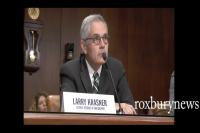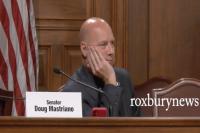As released by the Office of Peter J. Smith, United States Attorney, Middle District of Pennsylvania:
GLEN ROCK MAN CHARGED WITH DEFRAUDING 21 INVESTORS OF OVER $400,000.
The U.S. Attorney's Office for the Middle District of Pennsylvania announced today that Christopher A. Engel, 34, Glen Rock, Pennsylvania, was charged with wire fraud in connection with his operation of Pinnacle Forex Group ("PFG"), LLC, a currency trading firm that he operated from his home. A plea agreement was also filed indicating that Engel intends to plead guilty when he appears for his arraignment in federal court. Engel faces up to twenty years' imprisonment, restitution, and fines, if convicted.
According to U.S. Attorney Peter Smith, Engel created PFG in 2010 and advertised it on the internet as "a full scale currency investment firm" that was "in the top 1% of currency traders." Between June 2011 and October 2012, Engel allegedly received $411,500 from 21 investors throughout the United States that was supposed to be invested in the Foreign Exchange Market ("Forex"). The charges filed today indicate that Engel only invested $137,000 of the money into the Forex market and later withdrew those funds for personal expenses. The remaining funds were never invested and simply used by Engel for personal expenses.
The case was investigated by the FBI and is assigned to Senior Litigation Counsel Bruce Brandler for prosecution. Indictments and Criminal Informations are only allegations. All persons charged are presumed to be innocent unless and until found guilty in court.
A sentence following a finding of guilty is imposed by the Judge after consideration of the applicable federal sentencing statutes and the Federal Sentencing Guidelines.
In this case, the maximum penalty under the federal statute is 20 years imprisonment, a term of supervised release following imprisonment, and a fine of over $250,000. Under the Federal Sentencing Guidelines, the Judge is also required to consider and weigh a number of factors, including the nature, circumstances and seriousness of the offense; the history and characteristics of the defendant; and the need to punish the defendant, protect the public and provide for the defendant’s educational, vocational and medical needs. For these reasons, the statutory maximum penalty for the offense is not an accurate indicator of the potential sentence for a specific defendant. ****
Photo/Natalie Cake


































